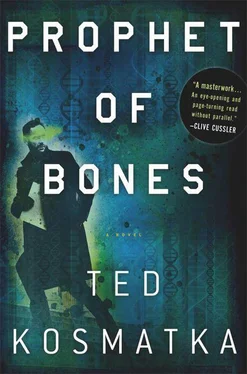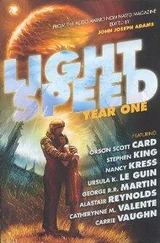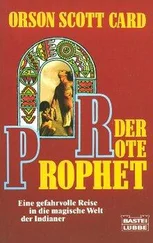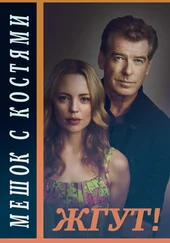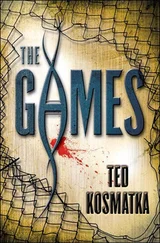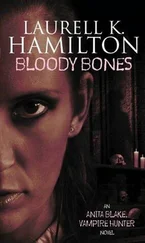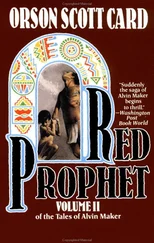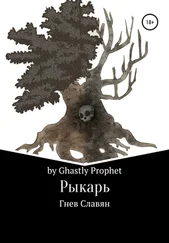From somewhere above, the garbled shouting grew louder. Then silence. Instinctively, he knew the silence was worse.
They were coming for him.
They.
And that brought it back.
All of it.
He remembered the impossible face. The iron-strong hand.
Paul climbed to his feet and made them move.
His right leg was agony, but it supported his weight.
He limped up the hill for a few steps, then stopped. That hill, he realized, was what they’d be coming down to meet him. He changed course, moving down the hill, toward the water, scrambling through the underbrush. He made his way to the river.
The foliage opened up before him, and there was the sudden expanse of water. Paul crouched and scooped a handful onto his face. It was shockingly cold. He dumped another handful over his head.
Voices drifted down from somewhere above.
They were searching. He looked right and then left, trying to make a decision.
He went left, hugging the shoreline, trying to put distance between himself and the voices. This took him under the bridge and along the other side. He moved as fast as his damaged body could carry him. The limp was getting worse as his muscles tightened up.
The voices grew louder, so Paul moved a few yards up from the riverbank. This way, if they made it to the riverbank and looked downstream, they wouldn’t see him.
Distance was the thing. The only thing. It was what mattered, putting distance between himself and them. When he’d gone another hundred yards, pushing twisted branches out of his way, he allowed himself to veer upward again, climbing the hill. He was on the other side of the bridge now. If they’d sent anyone down the hill on this side, he was finished. It was as simple as that.
He climbed, and the hill grew steeper, the underbrush less dense. The sound of traffic filtered through the bushes above. Soon a streetlight was throwing faint illumination through the foliage. Then, with a last upward surge, his thigh muscles burning, he was up and out.
He stepped onto a crumbling sidewalk. It was like being born.
He kept his head down and limped up the street, away from the bridge. Two blocks over, he circled back toward his car.
If they knew where he’d parked, if they’d left a guard, he was done.
He came around the corner of the building. He eyed his small black Matrix. He saw nobody nearby, but then again, he wouldn’t. Sometimes, pretending you had a choice was a waste of time.
He limped to his car, opened the door, and climbed inside.
He hit the ignition, shifted into drive, and pulled away from the curb. Without putting his seat belt on. Never had that infernal beeping sounded so good.
* * *
There were only so many places he could go.
His apartment was out of the question.
Paul drove quickly through the city streets, heading for the highway. It started to rain again.
First he’d need money. That before anything else.
But then a thought occurred to him. Even before money, he had to warn Charles. If they’d followed him to the computer guy, then it was hard to tell what they knew. It wouldn’t be much of a stretch for them to know he’d talked to Charles. Paul flipped open his phone but closed it again. His phone records might be compromised. If not now, then possibly later. If he called Charles, it would show up on a spreadsheet somewhere, and later it might make trouble for Charles. Paul didn’t want that.
Best to warn him in person. Tonight. Before things had a chance to spiral any further out of control.
It was a thirty-minute drive across the city.
When Paul finally pulled onto Charles’s street, he made a point not to slow down. He drove past the building, searching every shadow, working up his nerve. Again, nothing suspicious. By now Paul had realized that this didn’t mean much. There’d been nothing suspicious at Alan’s place, either. He parked two blocks away and walked it.
The sidewalks were puddled, but at least the rain had stopped. Paul kept his head down, walking with purpose. If he saw anything fishy, he’d take off, he decided. He’d never been much of a runner, and now, with his leg screwed up, he’d be even worse, but maybe with enough of a head start, he figured, he could make it back to his car. These were the things he was thinking about as he approached Charles’s apartment.
The windows were dark. Nothing stirred. Up and down the block, people slept in their beds, oblivious to the world outside their locked doors.
At Charles’s front door, Paul stopped. He listened. He put his ear to the door. Nothing.
He knocked.
A few seconds passed with no sound.
No shuffle of feet.
The door didn’t open.
Paul knocked again, louder this time.
Again, nothing.
He turned to leave, but in the dim glow cast from a streetlight he noticed the bootprint planted in the lower middle of the door. He noticed then, too, the jamb was slightly askew, as if somebody had closed the door, and then somebody else had it kicked in.
Paul tried the knob.
The doorknob didn’t turn, but the door swung inward, broken from the jamb.
He pushed inside. The door made a soft thud as it coasted into the doorstop.
Absolute darkness.
“Charles!” he called out, moving into the entranceway.
There was only silence.
“Charles, it’s Paul. Your door wasn’t locked.”
His hand fumbled at the wall, searching for a light switch. He found one, and the living room burst into view. He moved deeper into the apartment but saw nothing out of place. Nothing out of the ordinary.
“Charles, are you okay? I’m just here to check on you.”
Every book neatly in its shelf. The room neat and tidy.
Perhaps Charles was just out for the evening.
A late-night stroll. A trip to the movies.
But, of course, these suppositions all felt wrong. It was nine P.M. Paul would have bet his life savings that Charles hadn’t seen a movie in ten years. And late-night strolls could be dangerous. Charles would never have done that.
Of course, talking to Paul had been the real danger.
In the kitchen were the drawings from earlier. The birds. Only here was the first indication of something strange. Most of the drawings were stacked on the table, like during his visit, but a few had fallen to the floor. In the middle of the linoleum was a large torn drawing. Paul bent and picked it up. Only half a bird—the missing piece cut a jagged wound across the bird’s upper torso. The top half was missing. Paul looked around the kitchen but couldn’t find the other half of the drawing.
He moved down the hall, toward the bedrooms. “Charles!” he called again, though he’d lost hope of hearing a response. Now he only prayed that Charles wasn’t home. He pushed open the first door. The bedroom was clean and tidy, the bed neatly made.
Paul made a quick glance into the hall bathroom, which was empty, and then moved finally to the second bedroom. The last door. He turned the knob and pushed the door open. He flipped the light on.
He flipped it back off again.
He closed his eye. He breathed, trying to unsee.
The second bedroom had been used as a storeroom for art.
Charles was on the bed.
Paul took a deep breath and flipped the light switch again.
One arm was twisted beneath him. The other was draped downward, pointing at the floor.
His face was nearly unrecognizable. Only by his sweater, and his thin limbs, and his curly, sandy hair was Paul able to recognize him. Paul stepped farther into the room, moving closer. Charles’s eyes were half-lidded, caked in a thick crust of blood. His skull had been crushed in on one side like a dropped pumpkin. His throat was a bloody ruin—flesh torn wide, bright and freshly red, the blood not yet even congealed. A thick wad of paper was balled up and shoved into his mouth as a gag. Without having to look, Paul knew. The missing half of the bird drawing. He’d choked to death on it.
Читать дальше
